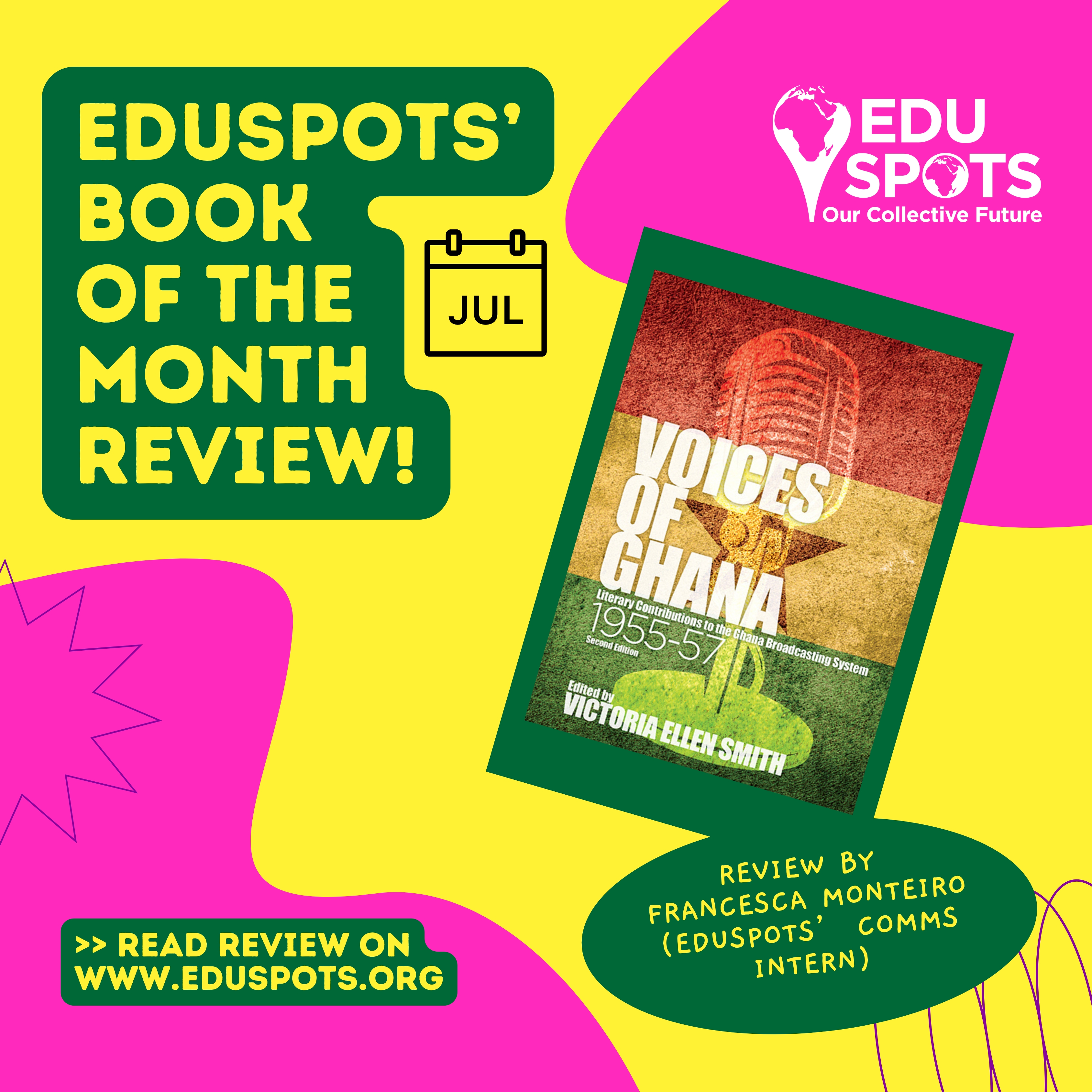Introducing the July Book of the Month. This month, we are exploring Voices of Ghana, a compilation of poetry and prose which explores cultural identity from the time of Ghanaian independence. This anthology celebrates the virtues of community and resilience ingrained in Ghanaian identity, unveiling how they arise in different communities and industries throughout the nation.
Voices of Ghana was originally published in 1958 as a collection of literature which was listened to nationwide via the Ghana Broadcasting Corporation’s radio service. Its second edition serves as a retrospective reminder of national history and culture following the country’s independence, and demands the recognition of an enormous archive of Ghanaian literature. The anthology both reinforces national heritage and brings to attention the significance of literature in shaping Ghanaian identity, especially through public broadcasting.
A Fisherman’s Day, told by Samuel K. Otoo, offers insight into how the changing economy shapes the daily decisions that a fisherman must face. While sharing details about the shifting demand, income and cost of his work, the fisherman undeniably maintains his values and those of the community. He upholds bravery and endurance against the harsh natural conditions he faces on the water, where every day he wages “war against one or the other of the elements as winds, weather, waves, currents and time.” Through utilising these traits, he is later able to resist the oncoming economic pressures out of his control and reaffirm his identity.
This story also reinforces the strong sense of community within the fishing industry. The fishermen each bear a huge responsibility to the rest of the crew, and have unfailing trust for one another on the boat. Because of this connection between all fishermen in the region, everyone has a duty to respond to any S.O.S signal from nearby boats, regardless of whether they are friends or strangers. Through establishing this assumed interdependence, the fishermen cultivate an honourable, collectivist culture which they can be proud of.
Because Voices of Ghana was compiled in response to the country’s upcoming independence, many of the pieces also act as a reflection on its colonialist history and pick apart how imperialist powers influenced Ghanaian culture.
J.H. Nketia’s story, Poetry of Drums, uses language as an example, focusing on the uniqueness of using music as communication. The drums are “vehicles of language,” replacing voices to carry sound better and to act symbolically. This story specifically focuses on the Akan communities, telling of the cultural significance of using drums for ceremonial occasions. This is contrasted with how other aspects of language in this region had more European influence, therefore highlighting the beauty of preserving Ghanaian culture.
Throughout the anthology, there is a common motif of pride and self-worth. This is largely explored in the poem Patriotism, by Joyce Addo, which establishes how heritage and ancestry shape our current identity. Addo’s pride in her country is mirrored as she describes the fraternity that brings the country together, further emphasising the strength of the collectivist society. This poem encapsulates the emotions being liberty and independence for Ghana, concluding with “hope for the unborn” and the “new era.”
A Fisherman’s Day also embodies Ghanaian pride, but instead channels this through the pride of the workers in their industry. As Otoo describes how the fishermen sing to uplift spirits during their labour, the unwavering sense of comradeship amongst them is both moving and admirable. In this way, Voices of Ghana succeeds in inciting emotion and action in its audience, as it reflects the virtues of the citizens in Ghana.
Overall, Voices of Ghana acts as a historical and cultural landmark of the power of literature and poetry in capturing the movement towards independence. The anthology promotes the value of resilience as a community, as well as outlining how identity is shaped by tradition and change.
It resonates with the EduSpots ethos of promoting local leadership to amplify unheard voices, and to empower individuals to take pride in their heritage whilst instigating social impact. The re-release of Voices of Ghana reminds us not only of the place that literature holds within education, but also of the core values of our communities.


